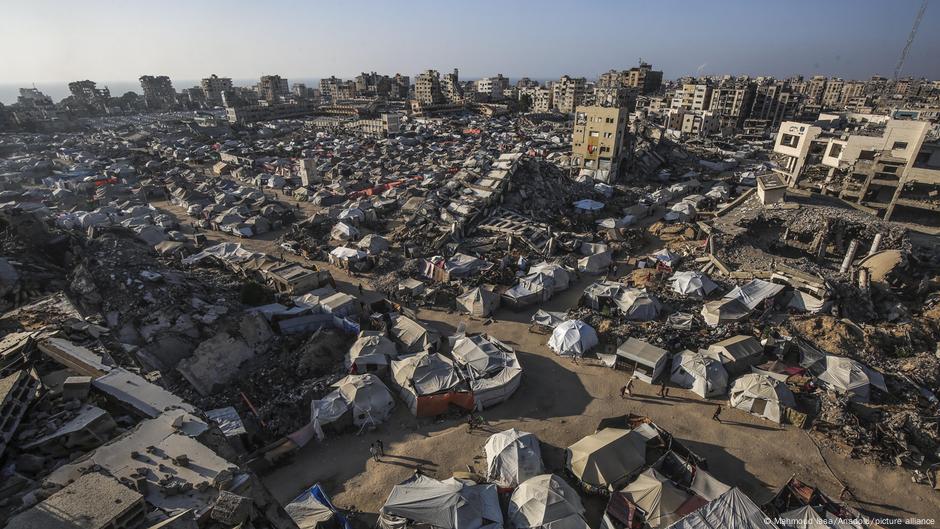Following a critical review by the EU regarding Israel’s human rights situation in Gaza, Spanish Prime Minister Pedro Sanchez criticized his fellow leaders for failing to take steps to suspend a trade agreement with Israel, referring to the current circumstances as a “catastrophic situation of genocide.”
According to authorities in Gaza controlled by Hamas, over 55,000 Palestinians have died amid more than 18 months of Israeli bombardment. Israel strongly rejects the genocide allegations, asserting that it is engaged in conflict with Hamas following a major terror assault on its territory in 2023.
In a report shared with EU member states last week, the European External Action Service indicated “indications” of Israel failing to uphold human rights obligations. This analysis drew from allegations made by significant international organizations.
The document, not publicly available but obtained by DW, noted potential indiscriminate military actions impacting civilians, the blockade on essential supplies, and attacks on medical facilities as possible violations. It concluded that there are signs Israel may be in breach of its human rights duties.
Unanimity Required for Suspension
As he arrived at an EU summit in Brussels, Sanchez stated it was “more than obvious” that Israel is violating Article 2 of the EU-Israel agreement. He contrasted this with Europe’s swift imposition of sanctions against Russia for its actions in Ukraine, highlighting a perceived inconsistency.
Spain and Ireland stand alone among the 27 EU countries in openly advocating for a full suspension of the trade deal, a move that requires unanimous agreement and has never been realistically pursued. Countries like Greece, Germany, Hungary, Austria, and Bulgaria maintain a strong alliance with Israel, with Germany explicitly dismissing the notion of suspension as infeasible.
Limited Options Available
Suspending the agreement would significantly disrupt trade for Israel, which relies on the EU for a substantial portion of its imports and exports, valued at $50 billion annually. A less ambitious alternative could involve partial suspension of specific provisions, but reports indicate that there isn’t sufficient support for such measures either.
Earlier in the week, EU foreign affairs chief Kaja Kallas clarified that the aim is not to “punish Israel” but rather to foster “concrete improvements” in the lives of Gazans. During the summit, EU leaders merely acknowledged the report without addressing potential human rights violations, planning to revisit the topic next month.
Spain has also called for an EU-wide arms embargo on Israel, particularly as Germany is one of its major arms suppliers. Although a few other nations support heightened sanctions, unanimous consensus remains a major hurdle.



